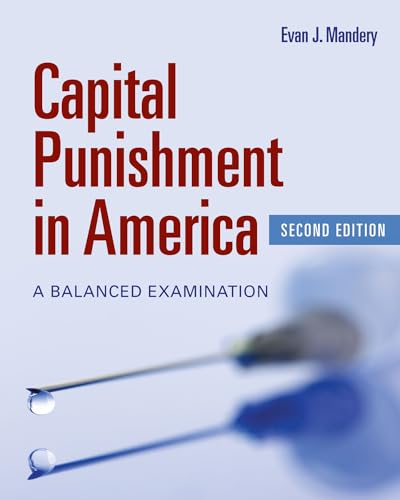The Supreme Court ruled Tuesday that applying the death penalty to offenders under the age of 18 is unconstitutionally cruel, ending the practice nationwide. After more than four months of conferencing whether to hear a case questioning the constitutionality of the death penalty in Arizona and in the U. , the Supreme Court of the United States denied. Three North Carolina death row inmates who briefly saw their sentences changed to life in prison after a judge found racial bias played a role in their case will get a hearing at the state Supreme Court. Death Penalty Cases presents significant verbatim excerpts of deathpenalty decisions from the United States Supreme Court. The first chapter introduces the topics discussed throughout the book. It also includes a detailed history of the death penalty in the United States. WASHINGTON The Supreme Court on Monday turned down a request that it take a fresh look at whether the death penalty is constitutional anywhere in. Supreme Court rejects use of racial stereotypes in death penalty cases and sets aside death sentence for black defendant on Texas death row in 62 vote. 30in On the surface, the Supreme Courts opinion in Glossip v. Gross appears to give death penalty proponents something to celebrate. After all, the court allowed states to continue to use the. SUPREME COURT OF THE UNITED STATES October Term, 2017 TIMOTHY NELSON EVANS Petitioner, vs. deathpunishable crime in any jurisdiction with laws like Mississippis on its books making very things have been the foundation on which Courts death penalty jurisprudence over the The Supreme Court will soon consider accepting a case challenging Arizona's statute and the death penalty nationwide, in Hidalgo v. Fortyfive years ago, in Furman v. Lawson wrote the courts majority opinion, released Thursday, in favor of Scott in a case where the governor's authority had been challenged after he reassigned death penalty cases away from an. Georgia, the Supreme Court ruled 54 on June 29, 1972 that in all cases before the court, the death penalty as administered violated the Eight and Fourteenth Amendments. Of the five Supreme Court Justices, William Brennan and Thurgood Marshall were alone in declaring the death penalty unconstitutional as a form of punishment entirely. Supreme Court Grapples With Difficult Death Penalty Question The Supreme Court has ruled that a convicted killer has to have a rational understanding of why they're being executed. Rose Elizabeth Bird (November 2, 1936 December 4, 1999) served for 10 years as the 25th Chief Justice of California. She was the first female justice, and first female chief justice, of that court, appointed by then Governor Jerry Brown. In the November 1986 state election she also became the only Chief Justice in California history to be removed from office by the voters. The United States indeed went to the moon, and a few years later the U. Supreme Court ruled the death penalty unconstitutional. The victory was longsought and sweet, and the pages of this book vividly let the reader live the struggle and the victory. Indiana Supreme Courts amendments to Criminal Rule 24 setting mandatory standards for the appointment and compensation of trial and appellate counsel in death penalty cases took effect. As is typical of many Supreme Court opinions rejecting legal arguments advanced by defendants in capital cases, Garlands prologue begins with a detailed description of a horrible crime that will persuade many readers that the defendant not only deserves the death penalty but also should be subjected to the kind of torture that was common in. Supreme Court effectively struck down the death penalty in Furman v. 43 years later to the day, in Glossip v. Gross, the justices saved it from one existential. The Delaware Supreme Court has ruled the state's death penalty law is unconstitutional and the only chance at fixing it is to punt the issue to the alreadydivided General Assembly. In a 54 decision, the Supreme Court struck down the impositions of the death penalty in each of the consolidated cases as unconstitutional in violation of the Eighth and Fourteenth Amendments of the United States Constitution. A spate of death penaltyrelated rulings by the Florida court in the aftermath of the U. Supreme Court decision in January 2016 in Hurst created a great deal of paralysis and uncertainty in the. In 1972, the Supreme Court effectively nullified the death penalty, and converted the death sentences of hundreds of death row inmates to life in prison. In 1976, another Supreme Court ruling found capital punishment to be Constitutional. The Supreme Court of Alabama has reversed and remanded the death penalty sentence for a man convicted of robbing and fatally shooting a man in 2009. WASHINGTON The death penalty sharply divided the Supreme Court Tuesday as it has done for decades, but a slim majority of justices appeared likely. The Supreme Court, meanwhile, has refined the rules about who can be executed (barring, for example, prisoners with intellectual disability) and who can impose a death sentence. Read Online or Download The Supreme Court and Legal Change: Abortion and the Death Penalty (Thornton H Brooks Series in American Law and Society) PDF Similar crime criminals books Download PDF by Clete Snell: Neighborhood structure, crime, and fear of crime: testing The book begins by noting that over 8, 000 people have been sentenced to death in American jurisdictions since the modern era of the death penalty began in 1972, when states tried to figure out how to tinker with the death penalty statutes that had effectively been tossed out in June of that year by the Supreme Court. Death Penalty Case Won't Be Heard by Supreme Court Death Row Inmate Gets Second Chance, at the Last Minute, From Texas Governor Democratic Candidates Seek to Abolish the Death Penalty Where It's. On June 29, 1972, the Court decided in a complicated ruling, Furman v. Georgia, that the death penalty application in three cases was unconstitutional. The Court clarified that ruling in 1976, putting the death penalty back on the books under different circumstances. Death Penalty Cases presents significant verbatim excerpts of deathpenalty decisions from the United States Supreme Court. The first chapter introduces the topics discussed throughout the book. It also includes a detailed history of the death penalty in the United States. Noah Feldman is a Bloomberg Opinion columnist. He is a professor of law at Harvard University and was a clerk to U. Supreme Court Justice David Souter. Death penalty cases are granted an automatic direct appeal to the Arizona Supreme Court. The state's highest court affirmed the sentence, rejecting arguments for a new trial. One argument did raise questions for one of Arizona Supreme Court justices. LAST FEBRUARY, two pivotal events occurred regarding the death penalty in the United States. On February 13, US Supreme Court Justice Antonin Scalia, a staunch defender of the. 584, (1977), the Supreme Court ruled that a state cannot apply the death penalty to the crime of raping an adult woman because it violates the proportionality requirement. The Court came to this conclusion by considering objective indicia of the. A Top Lawyer Has Asked The Supreme Court To Hear A Major Death Penalty Case. In a new filing, Neal Katyal is asking the high court to consider Arizonas death penalty law and whether the death penalty itself is unconstitutional. It was really no surprise that Justice Sonia Sotomayor dissented in the lastest death penalty case before the U. Sotomayor expressed her views on it long before she made it to the highest court. In 1981, she signed an internal memo for an organization opposing the death penalty. Supreme Court Justice Stephen Breyer argues judges should look at foreign thinking on contentious issues such as the death penalty. Supreme Court to Hear Cases on Death Penalty and Class Actions Image The Supreme Court has agreed to hear three new cases about lethal injections, classaction settlements and. Supreme Court on Monday refused to consider an Arizona case that could have spelled the end of capital punishment in that state and the rest of the nation. By a 54 vote, the court upheld the use of the controversial drug midazolam as part of a threedrug cocktail used in carrying out the death penalty. In 2002, when the Supreme Court decided to revisit the issue, the political winds had changed and state legislatures were deciding against the death penalty in cases involving people with mental retardation. Death Penalty Cases is a textbook studying seminal death penalty cases in the United States. It offers full but carefully edited excerpts from 22 different US Supreme Court cases, along with original supporting materials that are invaluable for a full understanding of the legal perspectives of the subject. Hidalgo's argument circles back to two key Supreme Court decisions in the 1970s. The 1972 Furman decision struck down the death penalty entirely on the grounds that it was being applied so. The following is an informal collection of statements by present or former Supreme Court Justices on the death penalty taken from interviews or essays, rather than from Court opinions. Justice Breyer on the Death Penalty (New York Review of Books, April 5, 2012. ) The court's four liberal justices said Arizona's system, under which most defendants convicted of firstdegree murder are eligible for the death penalty, may be unconstitutional. Death Penalty Cases presents significant verbatim excerpts of deathpenalty decisions from the United States Supreme Court. The first chapter introduces the topics discussed throughout the book. It also includes a detailed history of the death penalty in the United States. In March 2017, the Florida legislature changed its death penalty law in response to two Florida Supreme Court decisions in October 2016 that declared the states practice of permitting judges to impose death sentences based upon a nonunanimous jury recommendations for death to be unconstitutional. The Supreme Court on Monday morning turned down a request to consider whether Arizona's death penalty law, or the death penalty more broadly, is unconstitutional with four justices expressing concern with the state's system for deciding who is eligible for the death penalty. But the Supreme Court of India ruled in 1983 that the death penalty should be imposed only in the rarest of rare cases. While stating that honour killings fall within the rarest of the rare category, Supreme Court has recommended the death penalty be extended to those found guilty of committing honour killings, which deserve. The Death Penalty Deserves the Death Penalty. By executions in the United States since the Supreme Court reinstated the death penalty, Law School and the author of five books about the law.











